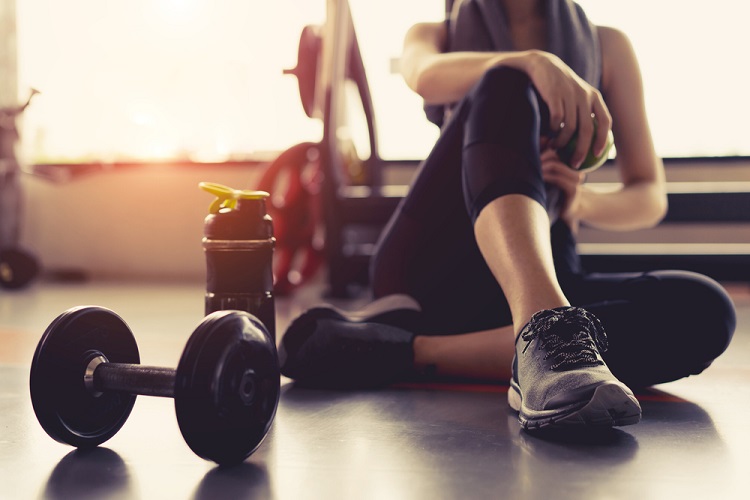The future of the health and wellness industry in Denver
From building community to the introduction of technology, here’s how health and wellness is changing in the Mile High City
Ali Longwell //February 5, 2020//


The future of the health and wellness industry in Denver
From building community to the introduction of technology, here’s how health and wellness is changing in the Mile High City
Ali Longwell //February 5, 2020//

With unprecedented access to the outdoors and a plethora of activities, Colorado residents have always been active. Even as the state’s population grows, the state’s wellness and fitness industry continues to attract across generations and prosper.
“Denver is going through an explosion,” says Jacki Carr, a Denver-based goal coach, speaker and co-founder of Rock Your Bliss. “With this explosion, I’ve seen two things. One, yoga studios are popping up everywhere, which is a huge indicator of the community and what it wants. And two, through fitness people are looking for community, experiences, events and are looking to make friends, especially transplants.”
This explosion is evident through the findings of a Denver Wellness Index, conducted by Mindbody, a business management software for gyms, spas, salons and more. This Denver-specific index is part of its national 2020 Wellness Index, which details the results of a survey of 20,000 Americans about their fitness and wellness routines. The index highlights not only what Americans are spending money on within this industry sector, but also the fitness trends that are rising across the nation.
The results of this survey indicated that Denver is the fourth healthiest city out of the 50 cities surveyed. Not surprisingly, this has to do with the large health and wellness industry in the city. In 2019, MindBody reports that the average annual spend on health and wellness was $1,272. And, the city's population is incredible active — 81.5% of those surveyed said they worked out once a week, with the average Denver resident working out three times a week.
While Denver remains active, the way that residents are staying in shape and maintaining their health is always shifting. Below are some of the trends that the survey identified here in Denver, with insights from members of the industry.
Access
The way that residents access health, wellness and fitness is evolving with technology and the busy schedules of those working in Denver. “In 2019 even more boutique fitness concepts came online,” says Shawn Johnson, owner of several Orangetheory fitness studios in Parker, Arvada and Golden. “Technology is going to advance our understanding of the human body in 2020 and beyond.”
With the advent of apps, wearables and other fitness technology, residents are able to access workouts and track their health wherever they are, and without a costly gym membership. “We are seeing the integration of technology across all fitness platforms,” Johnson says. “From boutique studios to recreation centers, people want to get the most out of their time working out and technology helps improve results.”
While Denver residents certainly understand the benefits of fitness, fitting a workout into your busy schedule can be difficult and fitness studios and businesses are adapting to this with short workouts and meditation, according to Reena Saucedo, the vice president of marketing at the Denver-headquartered CorePower Yoga. Many studios are adding shorter classes (5, 10 and 30 minutes long) in studios and on devices so people can get what Saucedo calls “quick-bursts” in.
In addition, Saucedo notes that a number of businesses are placing an importance on mental wellness by adding 15-minute group meditations or digital detoxes to employees’ schedules to recharge during business hours.
Emotional Wellness
Beyond physical wellbeing, a number of businesses are placing emphasis on mental health and emotional wellness. “This year, people are more open and honest about mental health,” Saucedo says. “We see employers in Denver looking to integrate mental health into benefits as well as startups popping up, centered around mental health, that are partnering with small businesses.”
Businesses in Denver, she says, are trying to figure out how to integrate emotional wellness into their workplaces, including making it more accessible and affordable. This includes offering therapy services, remote work opportunities, access to wellness and fitness services and adding mental health days to benefit plans. Within the industry, big fitness studios like Corepower and Pure Barre are starting to add wellness retreats to their offerings that encompass both physical and emotional wellness offerings.
Yoga
With this increased emphasis on emotional wellness, as well as for other reasons, yoga is continuing to grow in popularity. “Denver is realizing there is a physical-mental benefit in yoga,” Saucedo says. “We like efficiency and yoga is efficient. Students love the physical intensity, but the emotional benefits are just as important.”
According to the MindBody index, yoga is the No. 1 group fitness class in Denver, with 30% of respondents attending a class weekly.
Saucedo also notes that accessibility is a big reason yoga is so popular. Not only is it doable for people across fitness abilities, but on-demand and streaming services have opened the door and increased interest in the practice
Community
Between Denverites
Group fitness is on the rise in the city, with 29% of Denverites attending a group fitness class weekly. Aside from yoga this includes (in order of popularity), strength training, spinning and indoor cycling, aerobics, dance fitness and kickboxing. Group fitness is popular because it builds community, and it’s effective — 76% of those who exercise in a group or class three times a week or more are satisifed or very satisfied with their fitness level.
And, as Carr mentioned, fitness is a great way for the new city residents to meet friends and build a community of like-minded individuals.
New and existing wellness businesses should lean into community in order to thrive. “Don’t underestimate community, this means people are identifying with your business in themselves,” Saucedo says. “When you can build and cultivate community, they don’t leave.”
Between Businesses
Another trend that Denver is experiencing is increased collaboration and partnership between local fitness studios and concepts. With boutique wellness and fitness on the rise, small businesses are finding that partnering with other local concepts is a way to further grow your revenue.
“Denver has access to so many talented providers and services that not all cities have yet,” says Katie Wafer, founder and owner Hydrate IV. “I’m only one piece of a puzzle, and we need to be proponents for all wellness. There's a synergy between Denver business owners and I’m grateful for collaboration with other businesses. Rather than competing for clients selecting one type of fitness, let’s partner and cross-refer.”
One way that Denver studios are collaborating is through the creation of umbrella memberships with other local companies, according to Melinda Carr, MindBody's marketing manager in Denver. This means that someone with a barre studio membership might also get a complimentary three sessions at a nearby yoga studio or residents can purchase a bundle that includes a certain number of classes/services at two or three different businesses.
Integrated Health and Wellness
These partnerships between studios are leading to an increase in integrated health and wellness. This includes services such as acupuncture, massages, chiropractic care, health or life coaching, reflexology and more. According to MindBody, this grew 68% in popularity from 2018 to 2019.
One reason Wafer sees for this increase is that residents are gravitating toward proactive health offerings, which most integrated services fall under. “A lot of people are tired of fighting insurance companies and are open to concierge medicine and are willing to pay for a personalized service,” Wafer says.
This is a growing market segment nationwide, and especially here in Denver. MindBody found that millennials (ages 23 to 38) spend the most on integrative health, spending, on average, $456 annually. The future of this sector is expansive as well. MindBody asked respondents what services they wanted to see and it included float spas, meditation studios, wellness popups, nap bars, express reiki and crystal healing and much more.

























